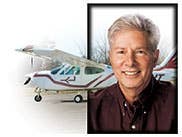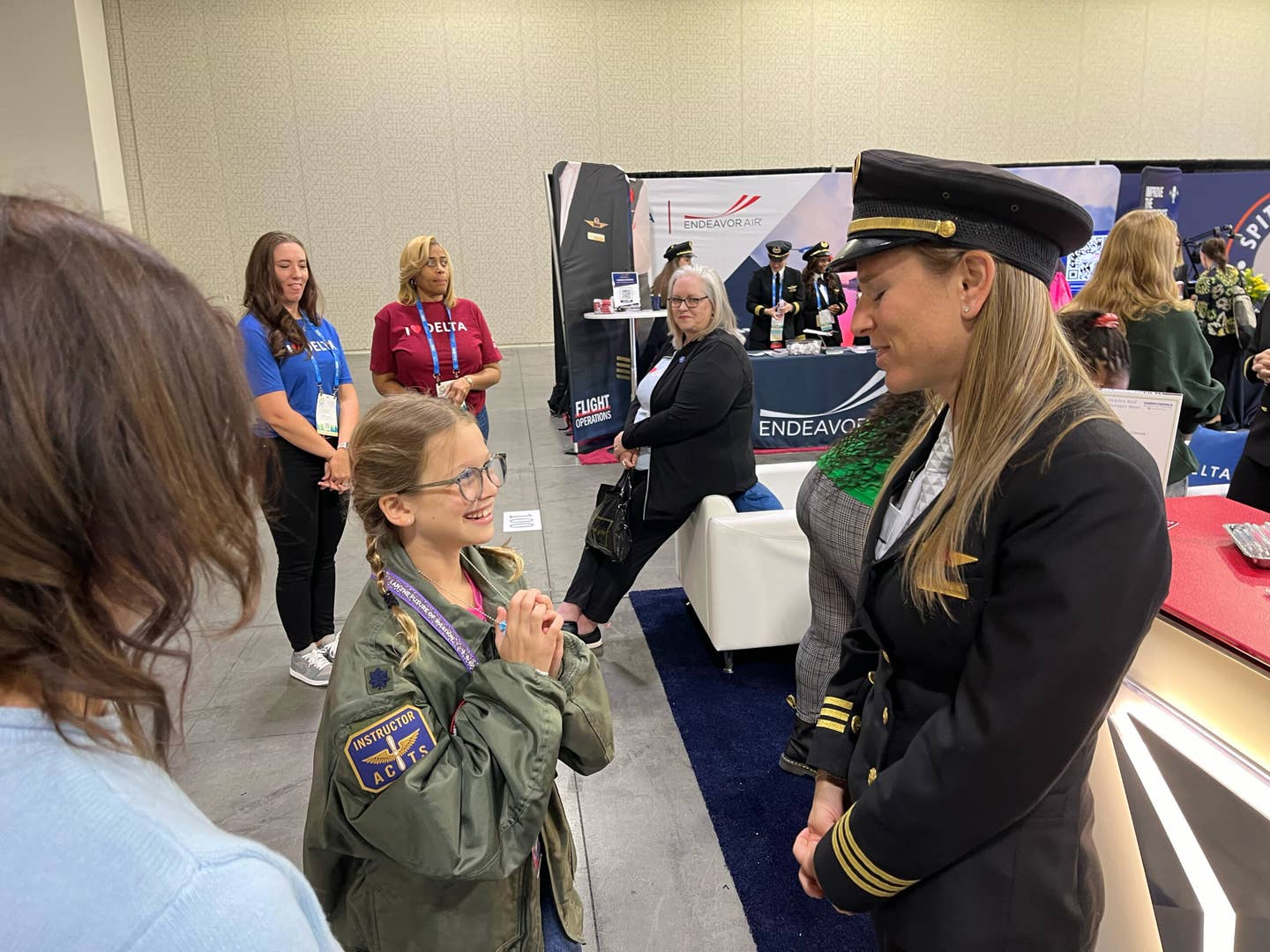
Traditionally, a master class is given by a recognized expert in a field -- usually music, but also painting, drama or any of the arts -- to students who are themselves advanced practitioners of the art, but who, for professional reasons, are anxious to improve their own capability. The 'masters' provide advice and often examples from their own experiences.
A flight instructor refresher clinic (FIRC) sponsored by NAFI (National Association of Flight Instructors), ASA (Aviation Supplies &, Academics) and Sporty's turned out to meet all the requirements of a true master's class.
The FIRC, held in San Diego in March in conjunction with the annual Women in Aviation International Conference, was presented by a group of 16 flight instructors who have earned the designation of Master Flight Instructor. Each of the instructors presented an hour of the FAA-mandated 16-hour FIRC.
Although the subjects were predetermined, it was obvious the presenters were professionals and had a great deal to offer the 20 or so CFIs, who had elected to renew their certificates by attending a FIRC, and several aspiring CFIs who appreciated the opportunity to better prepare themselves for the oral exam.
The CFI certificate is the only one that has to be renewed, the holder of a CFI certificate has to be recertified every two calendar years. The renewal can be accomplished in several ways including passing a practical test, earning an additional flight instructor rating or presenting a record of training students that shows that during the preceding 24 calendar months the flight instructor has endorsed at least five students for a practical test for a certificate or rating, and at least 80 percent of those students passed that test on the first attempt. By far the most popular method for renewing the certificate, particularly by CFIs who aren't actively instructing, is to present their local FSDO with a graduation certificate showing they have successfully completed an approved flight instructor refresher course consisting of ground training or flight training, or both, within the 90 days preceding the expiration month of their flight instructor certificate.
It's not surprising that most instructors who aren't actively instructing elect to attend a flight instructor refresher clinic rather than subject themselves to a practical test under the scrutiny of an FAA examiner. While it can probably be argued that attending a 'ground' school won't indicate how well a flight instructor can handle the controls and maneuver an airplane, the point is that flight instructors are 'educators,' which is why a CFI doesn't require a medical unless he's acting as pilot in command, which he would if conducting training for primary flight students.
A Designated Examiner, who is not a fan of the 16-hour FIRCs, told me that a CFI, who had neglected to complete an online (ground school) renewal program in time to renew his certificate before it expired, had presented himself to the examiner for a practical flight test. The examiner said that the applicant's control of the airplane was so far below the required standards that he had had no choice but to fail him. The examiner shook his head and added, 'So, he went to another examiner and got his renewal.'
Over the years, I've renewed my CFI 15 times and experienced a wide variety of FIRCs. When I first got the certificate, the clinics required at least 24 hours of refreshing. Eventually, the required time was reduced to 16 hours, but in addition to clinics with hundreds of students and those with just a handful, the FIRCs have changed. For a time, Jeppesen had a renewal process that involved shipping video tapes, cassette tapes and written materials to enrollees every four months. Over the course of the renewal period, a total of eight volumes would arrive. An advantage of that system was that the CFI stayed more up-to-date with changes in regulations than those attending a FIRC every two years. Eventually, with the advent of the internet, several companies began offering online courses that can now be used to renew the CFI certificate.
Having experienced a number of varieties of FIRCs, I wasn't sure what to expect when I enrolled in the San Diego FIRC. After registering, I was sent an email that highlighted each of the NAFI Master Instructors and what they would be presenting.
With a curriculum and materials from ASA, the presentations moderated by John Teipen (2005 National Flight Instructor of the Year) were, for the most part, the most interesting and informative of any FIRC I've ever attended. In addition to Teipen, the 'faculty' consisted of Master CFIs David St. George, Julie Hubner, Lonnie Hilkemeier, Adrian Eichhorn, Kathleen O'Brien Powell, Wanda Zuege, Terry Brandt, Jeanne MacPherson, Phil Poyner, JoAnn and Sandy Hill, Chuck McGill, Mike Coligny and Bridgette Doremire. Despite 16 hours of 'class work,' staying awake and alert was never a problem, the clinic was that interesting.
The evaluation reports submitted by the attendees were said to be overwhelmingly positive and NAFI and ASA feel the Masters experiment was successful enough to plan to offer other FIRCs in a similar format. Watch for one in your neighborhood.
So, what's a Master Flight Instructor? Established about 10 years ago, the Master Certified Flight Instructor (MCFI) designation 'identifies and publicly recognizes those Teachers of Flight who are demonstrating an ongoing commitment to excellence, professional growth and service to the aviation community.' It also promotes a Code of Ethics that sets professional standards to which all aviation educators can aspire.
When you consider what it takes for a CFI to qualify to become a Master CFI, it's not surprising that the presenters were capable and entertaining. To become a Master CFI, an instructor has to accumulate a minimum of 32 CEUs (continuing education units). Each CEU is based on approximately 15 hours of effort and are earned by performing activities in four different categories: Educator, Service to the Aviation Community, Creator of Media, and Participant. A minimum of 16 CEUs, approximately 240 hours, has to be earned in the Educator category, the other three categories require a minimum of 2 CEUs, approximately 30 hours. Each candidate's detailed application portfolio is reviewed in its entirety by the NAFI Board of Review. The designation requires a rigorous process of continuing professional activity and, like a flight instructor certificate, must be renewed biennially. A Master Certified Flight Instructor is a true master -- and professional.
This was the second time I attended a FIRC that was held in conjunction with the annual Women in Aviation conference. I've found it's a great way to recharge the batteries at the beginning of the active flying season.
Once again, the Women in Aviation conference set records in the number of attendees (3,320) and the number of exhibitors (151). What makes the WAI conference unique is that its intention is not primarily to sell anything, although there were representatives hosting exhibit booths of aircraft and avionics manufacturers. The purpose of the conference is to help women (and men) in all segments of aerospace advance in their careers, learn to become more professional and meet others like themselves or those who have 'been there, done that.' Recruiting is rampant at the conference and it was obvious from the number of airlines, both regionals and legacy airlines, that were accepting applications at their booths in the exhibit hall that there's a pilot -- and instructor -- shortage.
Traditionally highlights of the WAI annual banquet are the induction of women into the Pioneer Hall of Fame and the announcement of scholarship winners. This year just slightly less than $700,000 in scholarships were bestowed during the conference. The scholarships ranged from providing funds for maintenance, dispatch and primary training to offering type ratings in business jets and airliners.
One indication of the supportive nature of the organization and its annual conference is the scholarships that were founded and are financed by women who previously won scholarships themselves and are 'paying it forward.' The 'Keep Flying Scholarship' was co-founded by Deborah Hecker, a pilot with American Airlines, and Evelyne Tinkl, who now flies with United, both of whom were recipients of WAI type-rating scholarships. The 'If You Can Dream It, You Can Do It Scholarship' was established by Nicole Cagnolatti, an A&,P and pilot who has also been the recipient of several WAI scholarships.
For me, the combination of the Masters' FIRC and the opportunity to experience the feeling that "anything's possible" that permeates the annual WAI conferences once again fanned the winter-dulled embers of my passion for aviation.
Next year the 20th Annual Women in Aviation International Conference will be held at the Hyatt Regency in Atlanta from February 26-28, 2009.

Sign-up for newsletters & special offers!
Get the latest FLYING stories & special offers delivered directly to your inbox






